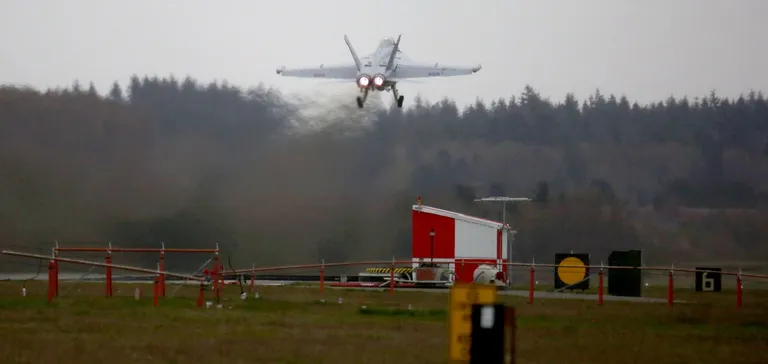By Amanda Zhou
Seattle Times staff reporter
A U.S. District Court judge ruled Friday that the Navy could continue running an increased number of jet flights at its base on Whidbey Island but must redo its environmental impact study that has been at the center of the case.
The order follows a 2022 ruling that the Navy violated federal law in its study of expanded operations of noisy Growler jets. The ruling found that the study did not give enough consideration to the jets’ impact to bird species, local students, greenhouse-gas emissions and an alternative training site in El Centro, California, violating the National Environmental Policy Act.
Washington Attorney General Bob Ferguson and the Citizens of Ebey’s Reserve sued the Navy in 2019 after it decided to increase the number of jets from Naval Air Station Whidbey Island by roughly 33%. The increase angered some residents on Whidbey Island and the San Juan Islands because of the noise.
The expansion increased the number of Growler flights to more than 110,000 per year, according to the Attorney General’s Office.
Although U.S. District Judge Richard Jones found the Navy’s violations of the National Environmental Policy Act to be “serious,” in Friday’s order he declined to roll back the expanded jet program.
Jones wrote that the Navy provided substantial support that the increased Growler presence at the facility was “essential for national security” and the court must “greatly defer to senior military officials’ professional judgments.”
The ruling still orders the Navy to “reconsider and reanalyze” the Growler jet expansion through a new environmental impact study, according to the Attorney General’s Office.
“Today, Judge Jones told the Navy it must follow the rules like everyone else. We agree,” said a statement Friday from the office.
Information from The Seattle Times archive was used in this report.
Amanda Zhou: 206-464-2508 or azhou@seattletimes.com; on Twitter: @AmondoZhou. Amanda Zhou covers afternoon breaking news and enterprise for The Seattle Times.
